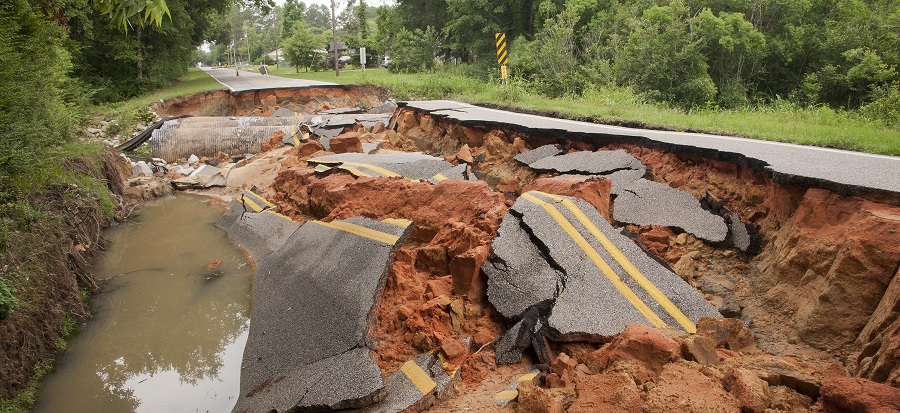
U.S. infrastructure suffers from a serious funding gap. In the quest to raise more money for infrastructure, the Trump administration recently proposed an increase in the federal gas tax. This has drawn renewed attention to America's infrastructure challenges.
Infrastructure is one of those issues that normally holds broad bipartisan appeal. Even the casual observer can see that America's infrastructure, the backbone of our national economy, is in dire need of repair.
This didn't happen overnight, and it didn't happen by accident. Basic maintenance on many transportation infrastructure facilities has been deferred, often for decades. Freight is moving too slowly, while dams and levees are deteriorating rapidly. Energy grids are stretched thin, while U.S. transit systems are second to all and the envy of none.
Nearly every state is currently struggling just to keep its existing infrastructure in good repair, let alone finding enough money to address rapidly growing new demands on transportation and other systems. Each year that another critical repair or capacity expansion project is deferred, it costs us dearly. Although the current debate has focused on $1 trillion over ten years, experts contend that we need to spend even more and much quicker.
The overall gap between the U.S.'s infrastructure needs and current funding is often pegged at around $2 trillion. The American Society of Civil Engineers (ASCE) estimates that investment gap will result in dramatic costs to the U.S. economy by 2025: $3.9 trillion in losses to gross domestic product; $7 trillion in lost business sales; and the loss of 2.5 million American jobs.
The ASCE's 2017 Report Card gave America's transportation infrastructure a shameful overall grade of D. And with phrases like, "strong risk of failure" "significant deterioration" many elements approaching the end of their service life," the details of the report hardly make for reassuring bedtime reading.
"We need new, market-driven policies and sustainable revenue sources - like public-private partnerships and mileage-based user fees to provide adequate infrastructure funding."
Unsurprisingly, the discussion ultimately comes down to money. Money in the form of new revenue sources, creative financing techniques, private equity participation, infrastructure banks, supportive public grants, and favorably-termed loans.
Currently, motor fuel taxes provide the main source of funding for our transportation infrastructure, but they are antiquated and can no longer do the job alone. The federal Highway Trust Fund (HTF), which collects all those motor fuel taxes at the gas pump and distributes them back to the states to fund projects, continues to run significant deficits year after year.
As vehicles become more fuel efficient, no longer use gasoline at all, or even start to drive themselves, it means less gasoline is purchased and less revenue flows into the HTF. So the fuel efficiency standards and other efforts that have benefited all of us environmentally are now in conflict with the main way we pay for the infrastructure that helps keep our economy moving.
That's why we need new, market-driven policies and sustainable revenue sources - like public-private partnerships and mileage-based user fees to provide adequate infrastructure funding given the realities of our 21st century economy and modes of transportation.
But money is not the only answer to improving how we plan and build infrastructure. In recent years regulatory reforms that expedited environmental and other project approvals have worked well. These important advances should be continued and expanded.
We've all heard of the bridge to nowhere. Reforming project selection processes will help capture economies of scale, force regional coordination among different owners and builders of infrastructure, and shift from a political to a data-driven approach to picking the right investments.
Many view public-private partnerships simply as a source of financing, but they also are a way to improve project delivery through private sector innovations and their market-driven approach to customer service.
Taken together, these steps can give Americans the safe, reliable, and technologically advanced infrastructure we need to keep our economy humming and people working. Let's not waste this chance.
Commentary by Steve Odland, CEO of the Committee for Economic Development and former CEO of Office Depot and AutoZone; and, Rick Geddes, a Cornell University Professor and Director of the Cornell Program in Infrastructure Policy. Read CED's new infrastructure report here. Follow Steve Odland on Twitter @CEDUpdate and @SteveOdland.
Source: CNBC